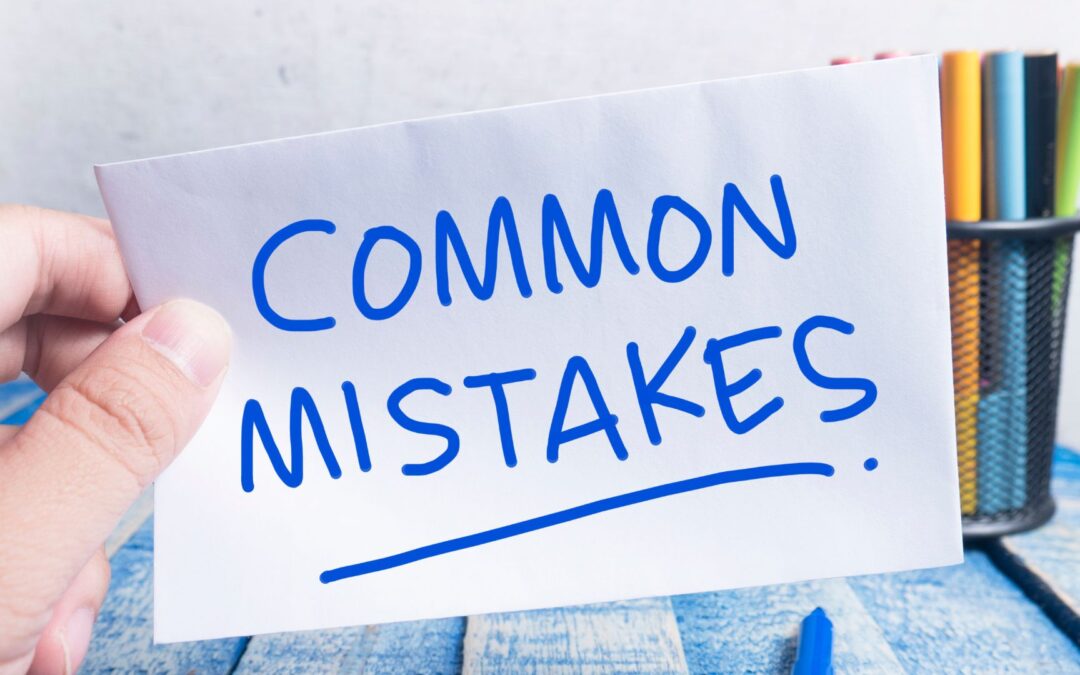Practice Worksheet
Transcript
Disclaimer
I am using an automatic transcript service as it is not possible for me to do it on my own and I cannot afford human transcription at the moment. The service claims to have about 95% accuracy, which means there will still be some mistakes, so my apologies for having a less than perfect transcript, but I hope I can afford human transcription soon and I will solve this problem. However, the service is pretty good, and the transcript is almost perfect.
Transcript
Welcome to a new episode from English plus podcast. Today’s episode is about vocabulary and the level of vocabulary we’ll talk about today is intermediate and above. So while that is going to be so beneficial to all other levels, because after all we’re talking about words, That have to do with certain topics and these topics are applicable to all levels and you can use them in your speaking and writing.
[00:00:33] But if you find this series of episodes, vocabulary, intermediate, too difficult for you, don’t worry. We have essential vocabulary coming up next week, which is going to focus on easier vocabulary words. But anyway, as I said, this is going to be useful to all levels, even if it is branded intermediate. So with that being said, let’s start with what I want to talk about today.
[00:00:55] And that is talking about countries, nationalities, and languages. Now what prompted this idea in my mind is when I hear people talking from different countries about where they come from. About their nationalities. There are certain words that people use in an incorrect way over and over. And that is an understandable mistake because in English, the problem is that we don’t have the same way that we deal with old nationality adjectives, or we use the same words for languages as well.
[00:01:28] So that can be a little bit confusing. What I’m trying to do today is to introduce you to the nuances, to those special, different ways. We can talk about countries, nationalities, and languages. So without further ado, let me start. With the very first common mistake people make, or maybe it’s not a common mistake, as much as it is something people don’t necessarily know about.
[00:01:53] For example, let’s say that you are from Holland or what we call the Netherlands. Usually people, when they come from there, they say I’m from Netherlands without that. And that is acceptable because usually for countries, we don’t add the, you don’t say I am from the France or I am from the Germany. We don’t have the, with France, Germany, Spain, Argentina, Brazil, Mexico.
[00:02:18] We don’t say I am from the Mexico or I am from the Argentina or I am from the Spain. We don’t say that. Right. We don’t use the with names of countries while that is absolutely true. And that is applicable to almost 95% of countries around the world. There are some exceptions. Most names of countries are used without the, but some countries and other names have the, before them, for example, the United States, we don’t say I’m from United States.
[00:02:52] It doesn’t work. There is the there, and you have to use it. I’m from the United States or the U S or the USA, the United States of America. So we have this example here where you must use the, before the name of the country, the United Kingdom is another example. You don’t say I’m from United Kingdom. I’m from the United Kingdom, or they say the UK the same is for then Netherlands.
[00:03:17] We don’t say I’m from Netherlands, the Netherlands, which is known to some people as Holland. And it’s definitely the same country, but we don’t say I’m from Netherlands. And from this Vern Netherlands, I’m from the Philippines. The Philippines is another country where we must use the, the United Arab Emirates.
[00:03:37] The UAE I’m from the UAE. I’m from the United Arab Emirates or from the European union, which is a region more than a country, but it’s the same thing. We don’t say I’m from European union. I’m from the European union or the EU or the Commonwealth. That is another example where we use the, the Commonwealth is a group of countries.
[00:04:01] Of course, it’s not just one country, but we say I’m from the Commonwealth. So that is something you need to know when you want to think about countries and names of countries. Again, remember most country names are used without the, but some are used with the. Countries and regions, et cetera. So that being said, that brings me to the next problem.
[00:04:22] And for the next problem is a little bit more complicated than the first one were the first, the problem is just using that with the limited number of names here, the problem is more complicated because there are no actual rules why we use certain suffixes with adjectives, referring to people, countries, and languages.
[00:04:40] For example, if you are from the Netherlands, what is the adjective from that? Do you say I’m Netherlands Rian, or do you say I’m Netherlandish or do you say I’m Netherland? DS? Ordinary LND with I only, which one is correct for this very example. It’s none of them, it’s Dutch. It’s another word actually, but that is of course an irregular case, but I’m using this example just to prove a point because you cannot put a rule next to a country.
[00:05:10] And you know that when you want to talk about the people who come from this country, you use ISA, or you want to talk about the language you put a N. Or ESC or IC. We have different suffixes to refer to nationalities and languages. All I can give you here is some examples and the different suffixes that we use.
[00:05:34] And then of course, while I cannot list all the countries in the world, I’m going to list some of the countries. And what you have to do is to check if you’re not sure. Especially if you’re talking about a country that is not used a lot in mainstream media, so you don’t hear that a lot. And that can make you a little bit confused about which suffix to choose from, to add to the adjective that refers to the nationality or the language.
[00:06:01] So let’s start with the first and maybe. The most common, which is I S H you say, British or Irish, Flemish, Polish, Danish, Turkish, Spanish. Now here we have these, I S H suffixes with these countries to talk about nationalities. While you can say I’m from Spain. If you want to use it as an adjective, you say I’m Spanish.
[00:06:29] Or if this specific country has a language of its own, you can use the word as well to talk about the language they speak. In most cases, of course, like he Spanish. I’m Spanish. And I can say I speak Spanish Turkish, the same. We say I’m Turkish and I speak Turkish. But if you talk about British, for example, You don’t say I’m British and I speak British.
[00:06:54] I speak English because the language there is English. It’s not exactly British. British is just the type of English. We have British English and American English, but we don’t say I speak British people speak English in Britain, British people speak English. So you see what I mean? And now that is for the ISA age.
[00:07:12] What about another suffix? That is also very common and that is a N or I a N. For example, Canada, if you are from Canada, then you are Canadian, but here is another example where you don’t use this word to talk about a language because there is no language that is Canadian. You don’t say I speak Canadian.
[00:07:34] You can say, I speak Canadian English dimension, the type of English you speak that is acceptable, but you don’t speak Canadian. Canadian is not language in Canada. They speak English or French. Mostly. Maybe there are some other languages I don’t know about, but the main two languages are English and French.
[00:07:52] And now we come to another word with this suffix Brazil. For Brazil, you say, I am Brazilian. If you are from Brazil, you are Brazilian. And here’s another example where you can’t use the word Brazilian for the language, because there is no Brazilian language in Brazil, they speak Portuguese. And by the way, it’s the only country in South America that speaks Portuguese.
[00:08:17] All the other countries speak Spanish. Anyway, apart from this. We have other countries that we use I a N or a N like Latvia, Latvian, or Korean, Russian Australian. So this is also another common ending that we can add to country names, to create adjectives we can use to talk about nationalities and languages.
[00:08:42] Another common one is E S E or ease like Japan, Japanese, Chinese. Vietnamese Portuguese multis Taiwanese. So here we have these words as nationality words, you can say, I am Chinese. If I come from China, I am Portuguese. If I come from Portugal and again, the same rule applies, not all of these words are languages.
[00:09:12] Some of them are, some of them are not. And then we have the suffix. Aye. Like when we say Iraqi Kuwaiti, Pakistani, Yemeni, Ben, Gladys. She, so you may be tempted to say Iraqian or Kuwaiti in or Pakistanis, Yemenis, Bangladeshis, whatever, but these are not the correct ending to create nationalities. And in some cases, languages for these countries.
[00:09:41] In these cases we use I, and we pronounce it as E Kuwaiti, Pakistani, Yemeni, Bangladeshi, Iraqi, et cetera. And then we have the I C and that is Icelandic Arabic Slavonic. And that is see at the end, it goes for some countries and for languages as well. And apart from these common endings, we have some adjectives that are worth learning separately, and these are different.
[00:10:08] And in most cases unique, the only country in the world that has this kind of ending. So we cannot include it as a common suffix. We can add two countries to make nationality adjectives or languages. These words like Swiss. If you come from Switzerland, you are not Switzerland, DS or Switzerland. You are a Swiss.
[00:10:28] If you come from Thailand, you are a Thai T H a I, if you come from Greece, you are Greek. If you come from the Netherlands, that example that I gave you earlier, you’re not Netherlands Indian, you are Dutch. And if you come from Cyprus, you are a Cypriot. All of these are kind of special. Maybe we should use the word special instead of irregular, because when you use the word irregular, it sounds kind of weird.
[00:10:55] These words are special. These are special words we use to talk about the nationalities of people who come from Switzerland, from Thailand, Greece, the Netherlands, and from Cyprus. So that being said, I will talk a little bit more about nationalities. Some nationalities and cultural identities have nouns for referring to people.
[00:11:16] For example, a fin or a Swede, a Turk. A Spaniard, a Dane, a Britain, an Arab appall. If you’re wondering a fin or talking about Finland, if you are a fin, that means you come from Finland, a Swede, you are Swedish. You come from Sweden while there are adjectives, while you can still say I’m Swedish, but you can say, I am a Swede.
[00:11:44] And as you can see, we can use a with it. It’s not an adjective, it’s a noun. We can use a with it. We use a term from people that come from Turkey. We use a Spaniard for a Spanish person, a Dean from Denmark, a Britain. And by the way, Britain here is spelled B R I T O N. Not like when we say great Britain, Britain in great Britain is spelled in a different way.
[00:12:08] That is B R I T H I N. But this Britain that refers to nationalities and cultural identities. It’s different. If we say he is a Britain, that is B R I T O N or an Arab, he is an Arab. He comes from this area in the world where people speak Arabic. He is an Arab from one of these countries or a pool. If you’re talking about people from Poland now for most nationalities, we can use the adjectives as a noun as well.
[00:12:40] We can say he is a German. He is any Italian. Of course you can say he is a German person. She is a German woman, et cetera. Or he is an Italian singer. It is a Belgian kind of chocolate, but you can use it without the noun afterwards. And we can treat most nationality words as nouns as well. And we can say.
[00:13:02] A Cadillac Catalan, a Greek and African, for example, or a European while this being true in most nationalities, some need this edition of woman, man person plays, et cetera. So you can say, for example, a Dutch, a Dutch person. So if you’re not sure about this, my advice is always use men, woman person to be a hundred percent correct all the time.
[00:13:30] Because for example, if you say a Dutch person. It’s correct. A Dutch man, a Dutch woman. It’s correct. If you say a Dutch, it’s wrong. If you say an Italian, it’s correct. But if you say any Italian person, it’s also correct. So if you are in doubt, if you’re not sure whether you need to add this word, man, woman, person, et cetera, edit anyway, because it’s always going to be correct.
[00:13:54] A French woman, an Irish person, an Icelandic man, et cetera. So these nuances are important because you hear them all the time and sometimes it can make simple mistakes, but why would we want to make simple mistakes when we know the way to avoid those mistakes? So that being said, I will move on because we’re talking today about vocabulary that has to do with countries, nationalities and languages, I guess it might also be important for a little geography lesson.
[00:14:24] Well, don’t be afraid. We’re not going to talk about geography. It’s just talking a little bit about some famous world regions, which are not actually countenance. Now, when you talk about continents. Yeah, no, we have North America, South America, Asia, Europe, Africa, Africa, Australia, and talk tikka and article.
[00:14:44] And I know some of you are going to say Arctic is not a real continent, and I know that because there’s no land there, but that’s not the point. The point is. Yes. We know the names of continents, but sometimes there are names of regions that are not continents and they’re not countries. It is just a region of the world that people use a special name for, to talk about all the time.
[00:15:06] Now let’s start from central America. Now, central America is not actually a continent. It is between North America and South America. The major country, there is Mexico. Of course, we call this world region. Central America. Of course there are other countries as well. And because this is not a geography lesson, I’m not going to list all the countries.
[00:15:26] It just where that is in the world. So we have this first famous region, central America right next to this region. We have the Caribbean, the Caribbean is. A famous, actually a very famous world region. And it is very famous for its islands, very famous islands right there. But we have famous countries as well, like Jamaica, Haiti, and the Dominican Republic.
[00:15:51] And, sorry, I’m not mentioning all the countries. So the people who are listening to me there, I’m very sorry if I didn’t mention your country or your city or your Island, because again, this is not a geography lesson. All I’m saying is that this part of the world. Is called the Caribbean, and this is not a continent.
[00:16:08] So you might not know where that is in the world. Well, we use that all the time when we talk about regions and this is one of them, central America is one of them. The Caribbean is another, and now let’s move to the old continent. Europe. We have two famous regions in Europe that we talk about all the time.
[00:16:25] The first region is Scandinavia to the North of Europe. That’s where we have Sweden, Norway and Denmark. And we have the Mediterranean, and that is for the countries which have coastlines on the Mediterranean. And there are a lot Italy, Spain, France, et cetera. And of course we have Greece and Turkey and we have countries from the Arab world as well that come from the South side of the Mediterranean and the East side.
[00:16:50] But the important thing is that there is the place where we have the Mediterranean sea. We call it the Mediterranean. And that is the region. That is a world region. When we talk about Mediterranean countries, we know we’re talking about this area in the world, and if you happen to visualize a map, or if you happen to have a map in front of you, it’s right in the middle of the map.
[00:17:13] And if we want to stay in the same area, but we go a little bit to the South. Yes, we have the great African continent, but we have regions that we usually talk about. And you hear about in the news all the time. We say North Africa, North Africa. We’re talking about Algeria, Tunisia, Libya, Egypt. These countries happen to be in the area.
[00:17:32] We call North Africa. And of course we have Southern Africa and it’s not only South Africa. There are other countries as well there, but we call this region Southern Africa. And now if we move a little bit to the East, We have the famous middle East, the middle East area. One of the areas that you will hear a lot about in the news, because usually there are a lot of things happening in this area all the time.
[00:17:58] Anyway, the middle East, we’re talking about a lot of countries there. Some of them are Arab countries, some of them. Or not, but this area where we have Saudi Arabia, Syria, Lebanon Hiran and the other countries as well, this area is called the middle East. And then if we go to Asia, we have some places in Asia that are very famous.
[00:18:20] And some regions, of course we have countries, we can say India and China and other countries in Asia, but we have regions that are very famous and people talk about them all the time. When they say the far East. Now the far East, we’re talking basically about China and the countries around China, that is the far East.
[00:18:40] And we have East Asia as well as a region. And there we have a lot of countries like the Koreas that happened to be in that region of the world. And apart from that, we can use the oceans as well to talk about regions like the Pacific, the Atlantic, the Indian ocean, et cetera. So that being said, thank you very much for bearing with me with this geography lesson.
[00:18:59] I promise you I’m not going to have a lot of geography lessons in our episodes to come. But that was important because, you know, you hear about it in the news all the time and you might not be sure where that happens to be in the world. And you might not be sure what word to use. If you want to describe something that is happening in that part of the world or that region.
[00:19:19] Now we will move to our last point in this episode, and that is talking about regional groups and ethnic groups. Oh, people belong to ethnic groups and regional groups such as African, Caribbean, Asian, Latin American, Northern African Scandinavian, Southern African European Arabic. These can be used as countable nouns.
[00:19:41] Or as adjectives. So that is something you should know because these words are used a lot. You hear about them again in the news a lot. We’re talking about regional groups. We’re not talking about specific countries in this case, when you talk about the European person, a Southern African person, a Scandinavian person, we’re talking about regional groups and ethnic groups.
[00:20:01] Now many Europeans enjoy traveling to the far East to experience Asian cultures and Asian of course comes from the continent itself. For example, we say Arabic culture extends across a vast region of North Africa and the middle East. So that is also, we use the word Arabic to describe culture. And another thing to talk about here is the dialects people speak dialects as well as languages.
[00:20:28] Well, everyone has a native language or first language sometimes called mother tongue, but many have second and third languages. Some people are expert in more than one language and are bilingual. Or multilingual. Sometimes these languages are actual languages or separate languages. And sometimes the second or third language that you speak is more or less, it’s a dialect than it’s just a language or dialects are kind of variations of the same language that can affect the way you pronounce the words, your accent.
[00:21:03] And it can affect the choice of some words. That you use in your everyday life. So, as we said, some people are experts in more than one language, and then they are called bilingual. That means too, they speak two languages or multilingual. They speak multiple languages. They speak many languages more than two.
[00:21:24] Obviously it can be three. It can be 10. It can be a hundred. Now, while we said that there is a word for people who speak two languages or more than two languages, there is a word for people who only know one language. And that is monolingual. When we say, for example, I am monolingual. That means I speak only one language.
[00:21:44] If I’m bilingual, I speak two languages. Multilingual, you get the point. So that being said, I hope that this is not your regular countries and nationalities thing. Yeah. We say this word and that is the country. And that’s the nationality. I hope there is a little more information, more useful information that you can use to understand these things when you hear them in the news, and maybe you can start using them in your own conversations and writing.
[00:22:10] That being said, I want to remind you that you can find the transcript of this episode in the link. I will leave in the description of this episode and don’t forget if you want to practice what you’ve learned here today, and you want to get the PDF worksheet or you get a chance to practice all these things, remember them and add them as a part of your active language, the language that you use, not only the language that you.
[00:22:34] Receive and understand, but the language you understand and produce, you can use in your own writing and speaking, if you want that you can get a PDF worksheet for this episode. And for every episode, if you become a patron on Patrion for this show, and that is one benefit you get from becoming a patron for this show.
[00:22:53] But remember, by becoming a patron of this show, you are also supporting this show to go on and never stop. So that being said, This is your host, Danny. Thank you very much for listening to another episode from English plus podcast. I will see you next time.











0 Comments